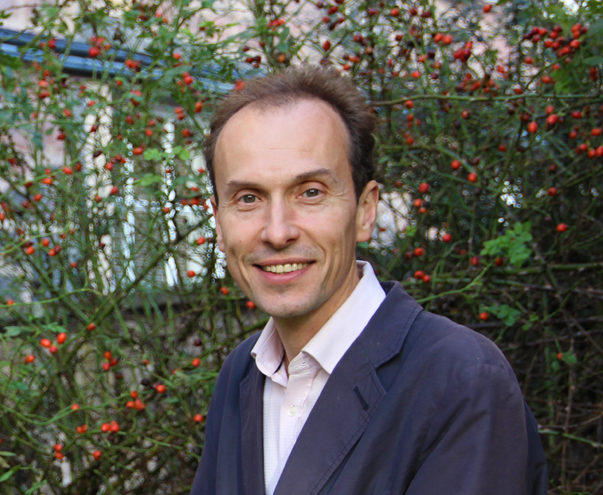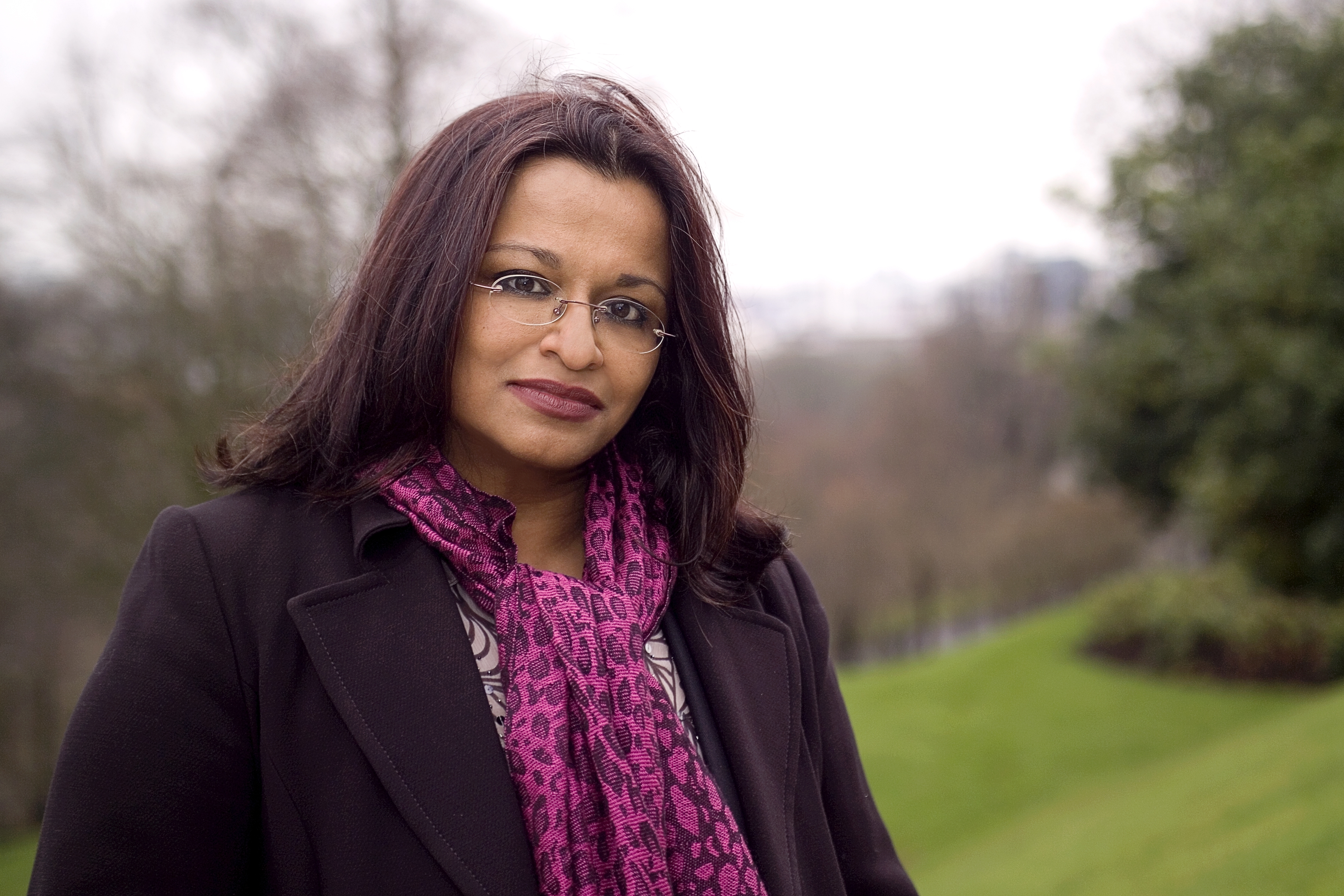
MITCHELL: You have recently published Hospitality in Islam. Why did you write the book?
SIDDIQUI: I wanted a theme that would resonate with a bigger audience, so it wasn’t just aimed an Islamic audience, it was really aimed at the very fact that we are now re-thinking hospitality in our political and social context. But I really wanted to go back to the theological roots of hospitality, because so much of my recent writing has been an interface between Christian and Muslim traditions. I thought: how can I structure a book that can appeal to both Christian and Muslim audiences, while also thinking about hospitality as not just something that we do, but hospitality as an attitude?
MITCHELL: What do you see as your central argument?
SIDDIQUI: That hospitality is a blessing but that it’s also a burden and that there are limits to hospitality. It’s very easy to say theologically that hospitality should be limitless but as soon as you start looking at the history of hospitality you see that there is always an etiquette and parameters to hospitality. Hospitality is not the same as generosity, and I think people tend to get these things mixed up. Of course, all of these concepts play off of each other, but hospitality, if done well, does need parameters. I think we’ve lost sight of that.
MITCHELL: What do you see then as the parameters of hospitality?
SIDDIQUI: Well, for example Al-Ghazali talks about the duties of the host and the guest, that there are duties that are mutually bound. The host can open the door to the guest, but the guest should also know how to behave. Now this is just a microcosm of one area of hospitality, but it makes one consider: how do you broaden that up to political rhetoric? Well, if you go to visit a country, or if you become accepted by a country as a refugee or through asylum, there are obligations as well as to how you integrate into that society, because the host has done their bit in welcoming you. Although, the book is not really meant to be a political comment even though I do look at Derrida and all the people who talk about limitless hospitality. It’s not really a social-political comment; it’s more an invitation to think about the various concepts around hospitality.
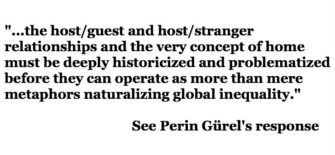 MITCHELL: It’s fascinating how you extrapolate from minor practices more major significance. Do you see that movement going on throughout the book?
MITCHELL: It’s fascinating how you extrapolate from minor practices more major significance. Do you see that movement going on throughout the book?
SIDDIQUI: It’s more that the quote from Derrida, the hospitality ethics and ethics as hospitality, is something that we’ve stopped thinking about. In fact, how we are with one another lies at the root of not only our personal relationships but at the very fabric of society. It’s what creates society. Institutions and civil society are based on relationships; they’re not just based on structures.
MITCHELL: Would you say the actual process of writing the book changed how you viewed and understood hospitality?
SIDDIQUI: I think I learned a lot from one or two writers, in terms of sentences like: “If we think about hosting like getting a house ready, well, a house is never ready.” But actually if you just let people into your life, then you can always be ready for that. But the reason the book was triggered was because of a friendship I had with a young White Christian male. As we were eating, it dawned on me that there are things in our lives and in our relationships, that transcend ritual, ethics, law, and the boundaries of our own religious tradition, and those are the most elusive aspects of life which need exploring.
MITCHELL: Was there any part of this book that made you change your mind?
SIDDIQUI: The chapter on divine hospitality was a challenge. You have the Eucharist in Christian theology which is a very obvious and deep symbol. You don’t have that equivalent in Islamic tradition. So, how to consider how we think about divine hospitality, bearing in mind that most Christians, when they talk about hospitality, see the face of Christ in hospitality? It is a Christ-centered concept. If you do not have an equivalent in the tradition, where do you find a parallel? It was a bit of an eye opener for me to realize that I had never thought about the delights of paradise as heavenly hospitality.
MITCHELL: I was interested by how you handled the Abraham story, learning from the different perspectives provided. It’s quite surprising—the Abraham story is quite different between the two traditions—there’s fear in it.
SIDDIQUI: That’s right. The reason I put that in is because Abraham is now used as a short-cut to talk about interreligious—as if somehow Abraham is at the roots and therefore we can’t talk about the differences around Abraham himself. So, I wanted to look at the differences, partly because it’s so powerful in the Hebrew Bible but also in the later traditions around the Qur’an. Who were these strange men? Were they angels? Was God himself present? Why did they not eat? The Biblical Abraham story is quite different. Part of my fascination with the comparison is to say that, actually, in so much of the religious literature—not just in ethics, but theological and philosophical—you have similar vocabulary, but the vocabulary takes you into different directions completely. You have similar names like Abraham and Moses, but their stories are different. The legacy they leave behind is different. So, for me there are meeting points, but it’s the difference in the stories that is interesting.
MITCHELL: If you were to highlight the significant differences in those stories of understanding hospitality, what would they be?
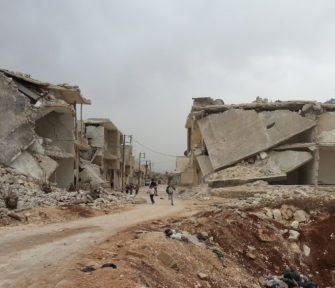
SIDDIQUI: The stories are almost motifs to start the conversation. For example, I was speaking to somebody recently who is a philosopher, and he was looking for that ultimate Islamic virtue. I said, “What would that be in your eyes?” He’s not Muslim. And he said, “Oh, generosity.” But generosity is not the same as hospitality and this led me to a whole literature on generosity which I haven’t quite found in other religious traditions. Not because it’s Islamic, precisely because it’s pre-Islamic, it’s been woven into Islamic societies. Generosity wasn’t just the act of giving; it’s the most noble thing that you could do. Because in the harsh desert environment, if you weren’t generous to your guests or to the stranger, the stranger would die.
MITCHELL: You talk about the stranger there, and it’s intriguing how that is woven into your argument. What I am trying to understand is how the stranger, how your understanding of the stranger, might inform interreligious conversations.
SIDDIQUI: The concept of stranger isn’t in the Qur’an itself. The stranger is, I think, quite a biblical concept. The stranger is to be feared. The stranger is unknown territory. You don’t know the stranger; you don’t know the language of the stranger. I don’t tend to think of the stranger like that, partly because of my own roots coming from another land and possibly being a stranger here (though when you’re that young you don’t realize it). I don’t see the world in terms of strangers. That doesn’t mean to say I see the world as friends, but the world isn’t full of strangers who will do something bad.
MITCHELL: In schools one of the phrases you probably know is “stranger danger.”
SIDDIQUI: And what we are finding is that most of the dangers we face in our lives come from our families—not from strangers. Whether it is child sex abuse, whether it is marital rape, whether it is domestic violence, these are coming from within our domestic situations. The stranger is there as somebody, in a way, that encapsulates all of our fears, but, actually, our fears are being misplaced—our fears are much closer to home.
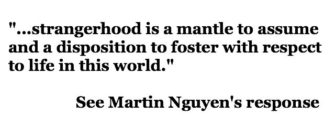 MITCHELL: How would your insights on strangers inform debates regarding Islamophobia?
MITCHELL: How would your insights on strangers inform debates regarding Islamophobia?
SIDDIQUI: I think the focus on Islam in Europe and the United States to some extent is again bringing up old tropes about Islam and Christianity. I have always said that there are issues within Muslim communities that need to be addressed for the last two decades. I knew that ultimately some of these issues would catch up with other [non-Muslim] people who would say: “Muslims are fundamentally different from us”. So, it is not the stranger aspect of the Muslim himself; it’s the fact that he is seen now as an antithesis to Christendom. And, although we don’t talk about Christendom, the West is often conflated with Christianity. The Muslim doesn’t just represent the medieval threat; the Muslim represents a threat to secularity itself.
MITCHELL: What would you say that your book on hospitality contributes to those discussions?
SIDDIQUI: I would hope that people would think hospitality is not a virtue without limits. It’s not an absolute virtue: it demands a certain commitment. It’s a doing word. You have to do things for it to be sustainable. I have always argued and I will still argue that any minority community that goes to a different country—or anyone who is born as a minority and says, “Well, I am British by birth”—still will feel at odds with the wider society simply by being a part of a minority community. To what extent you let that define who you are, and to what extent you say that there are always going to be certain differences which you can live with—it’s what you can give to the wider society, in as much as you can give, that should matter. So, you should be defined by your giving rather than by what is being taken away from you.
MITCHELL: What would you say to the critic that says that hospitality is hopelessly ideal and that the reality is that we do need to have walls to protect ourselves?
SIDDIQUI: In this age of globalization and borderless nations in some ways with internets, how can you have walls to protect yourself? Our biggest fears are fears that we have in our imagination. They’re not really about the person on the street. It’s the thought that ‘so and so’ can do something to me. That doesn’t take away from the real threats of various things. But actually, there are all kinds of threats out simmering away that we never hear about, and they may come from all areas of society. We have to decide what proportion of our lives we want to spend obsessing over one particular threat as opposed to the other stuff that’s going on. I don’t think it is an ideal.
MITCHELL: How might your work on divine hospitality inform conversations across divided communities?
SIDDIQUI: At the end of the day, again, I quote Ghazali, that in death the only thing you take with you is your good deed. Everything else you leave in the grave, but the good deeds stay with you. Islamic tradition has a huge literature on this, you know, that if you do good, that’s blessing incurred on your parents who have deceased. There is a sense that goodness is inherited and passed back as well.
MITCHELL: It’s interesting to reflect on hospitality as the basis of all relationships in regards to distant suffering. Obviously, the media is bringing suffering which is far away close to us, but it also blocks us; it’s a barrier as well. And I suppose there is part of me that wonders, to what extent hospitality can be expressed to places and peoples who are experiencing distant suffering, whether that is Aleppo, or South Sudan, or Gaza City.
 SIDDIQUI: I think it’s very easy to become desensitized to all of this because images are there all of the time. On the other hand, I think we shouldn’t underestimate human generosity and the desire to do good when people see suffering. I think Christine Pohl said it that we are far more consumed with distant suffering than the suffering that is taking place at our doorstep. And I think it is how you balance both. I don’t think that you can just focus on one.
SIDDIQUI: I think it’s very easy to become desensitized to all of this because images are there all of the time. On the other hand, I think we shouldn’t underestimate human generosity and the desire to do good when people see suffering. I think Christine Pohl said it that we are far more consumed with distant suffering than the suffering that is taking place at our doorstep. And I think it is how you balance both. I don’t think that you can just focus on one.
MITCHELL: It’s striking to think how hospitality actually trains us beyond the practice of compassion fatigue, and the imagination of compassion fatigue.
SIDDIQUI: It’s a duty. Towards the end I think it’s Henri Nouwen who said that this is not just some tea and biscuits hospitality; this is sacred duty, and all duty is hard. So, any reciprocity, any reciprocal relationship, has a level of duty in it.
MITCHELL: What do you see as the resources within Islam, within Sunni Islam in particular, for nourishing those wanting to practice daily acts of hospitality?
SIDDIQUI: Probably in the institution of charity, which is so intrinsic. Zakat institutions feed into charitable organizations, people pay so much into any charity. I think Muslims have some of the highest rates of charity giving, because they see it as the best of their faith.
MITCHELL: So I suppose partly behind the resources is that it’s clearly a hard thing to do. It’s a duty, and duty sometimes is a hard thing to do. When I think about resources, I think about other kinds of practices, like spiritual practices that can drive people towards being more outward-looking.
SIDDIQUI: I think of prayer, and I think of migrations themselves. The Hajj is a major pilgrimage, but people do the lesser pilgrimages. Part of the reason that people do these pilgrimages is actually a renewing of their soul. We need to do something hard and demanding to find our faith again and to find what we can do for others in a community. So, all the resources that take you back from the individual to the community reawaken the sense of mutual obligations.
MITCHELL: Thank you very much indeed for your time.
SIDDIQUI: Thank you, a pleasure.
Note: This transcript has been edited for the purposes of the blog.

